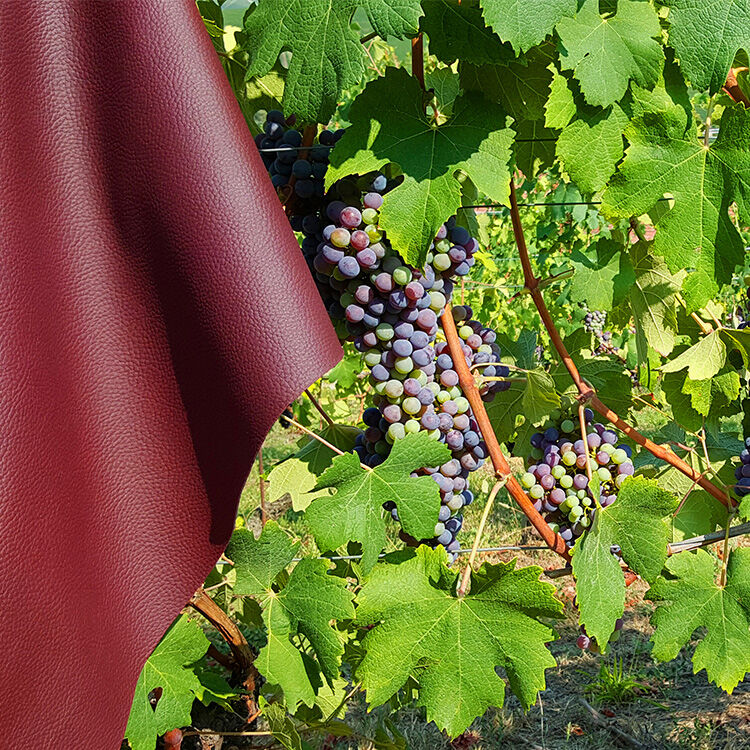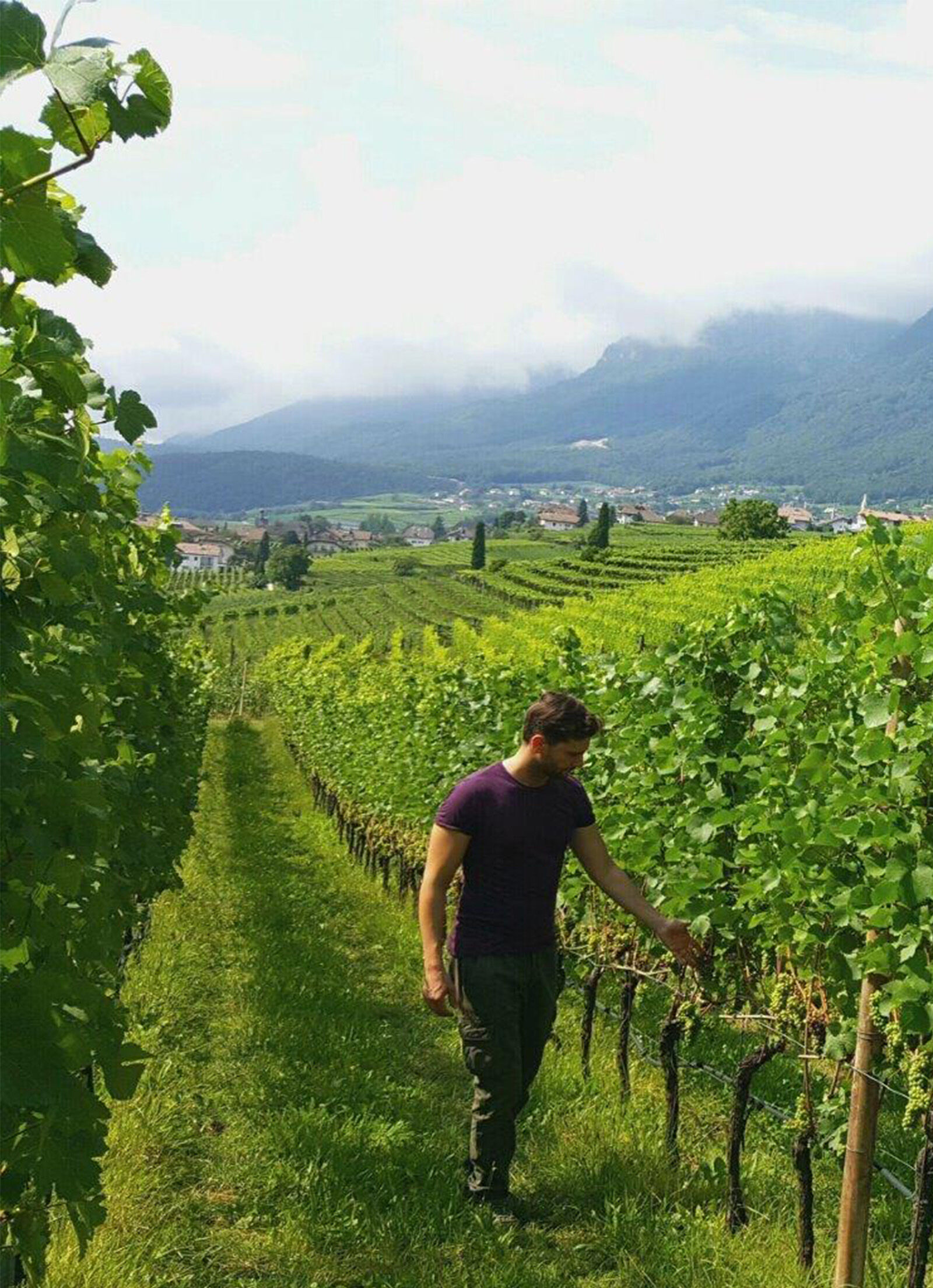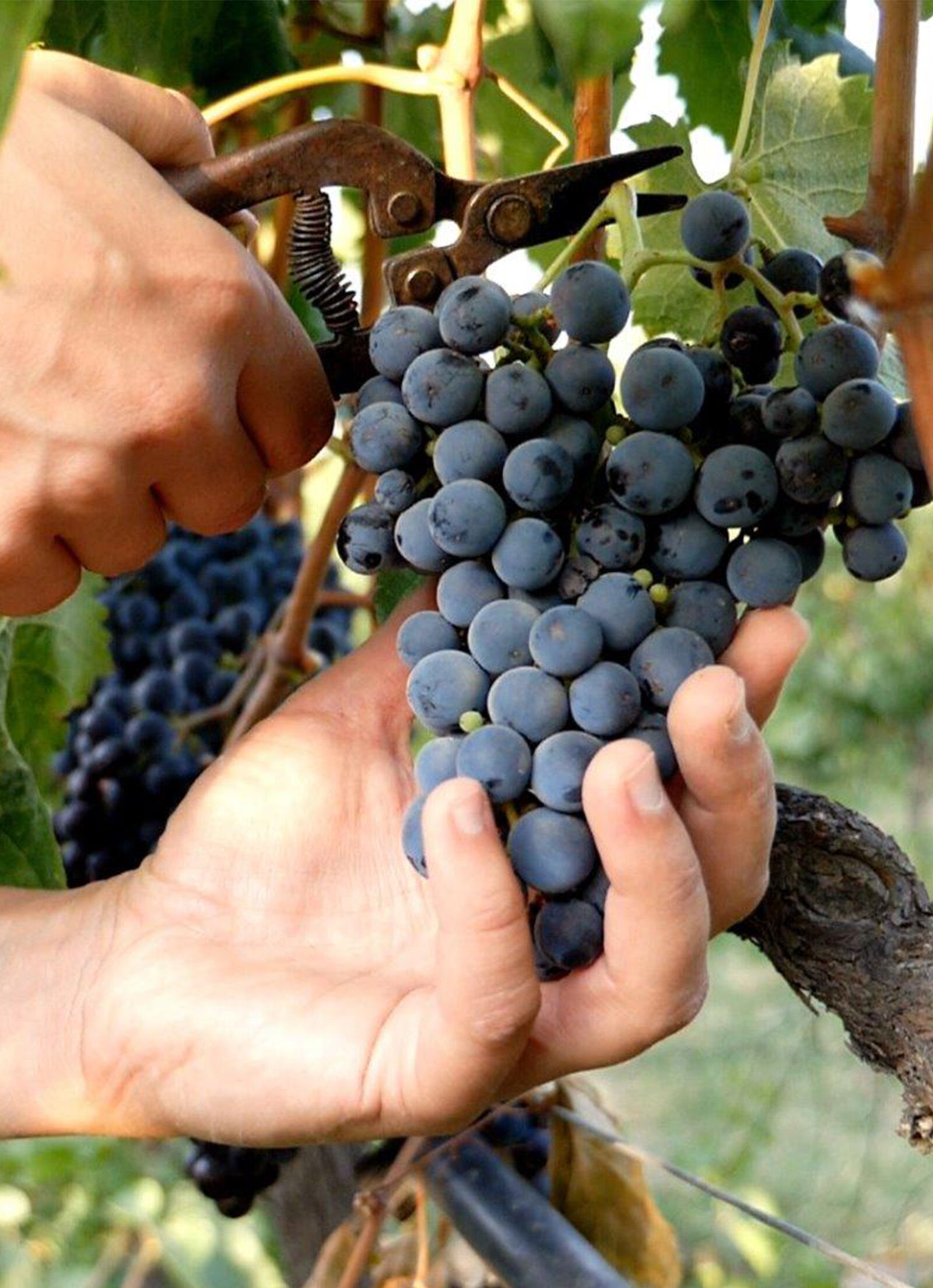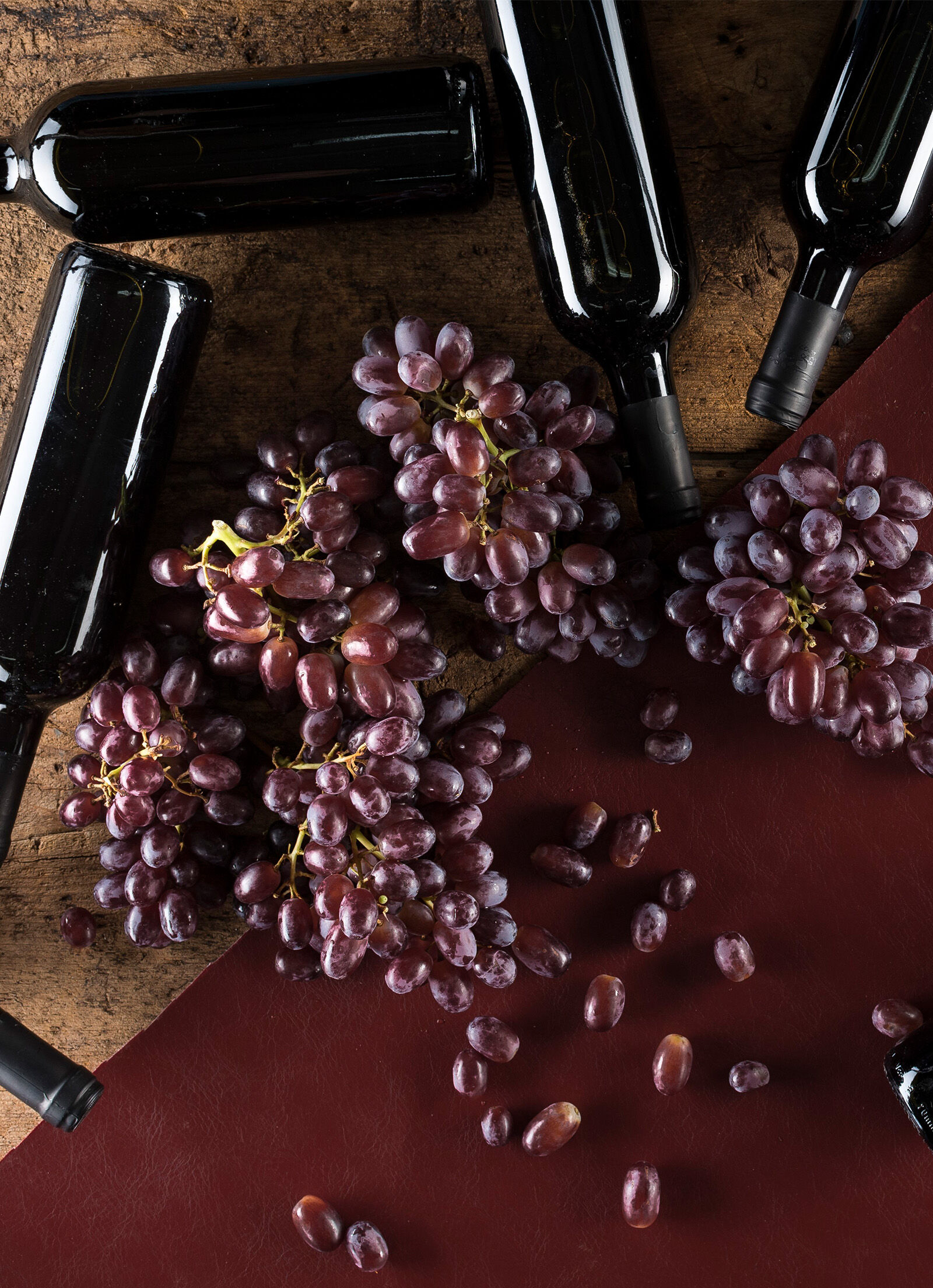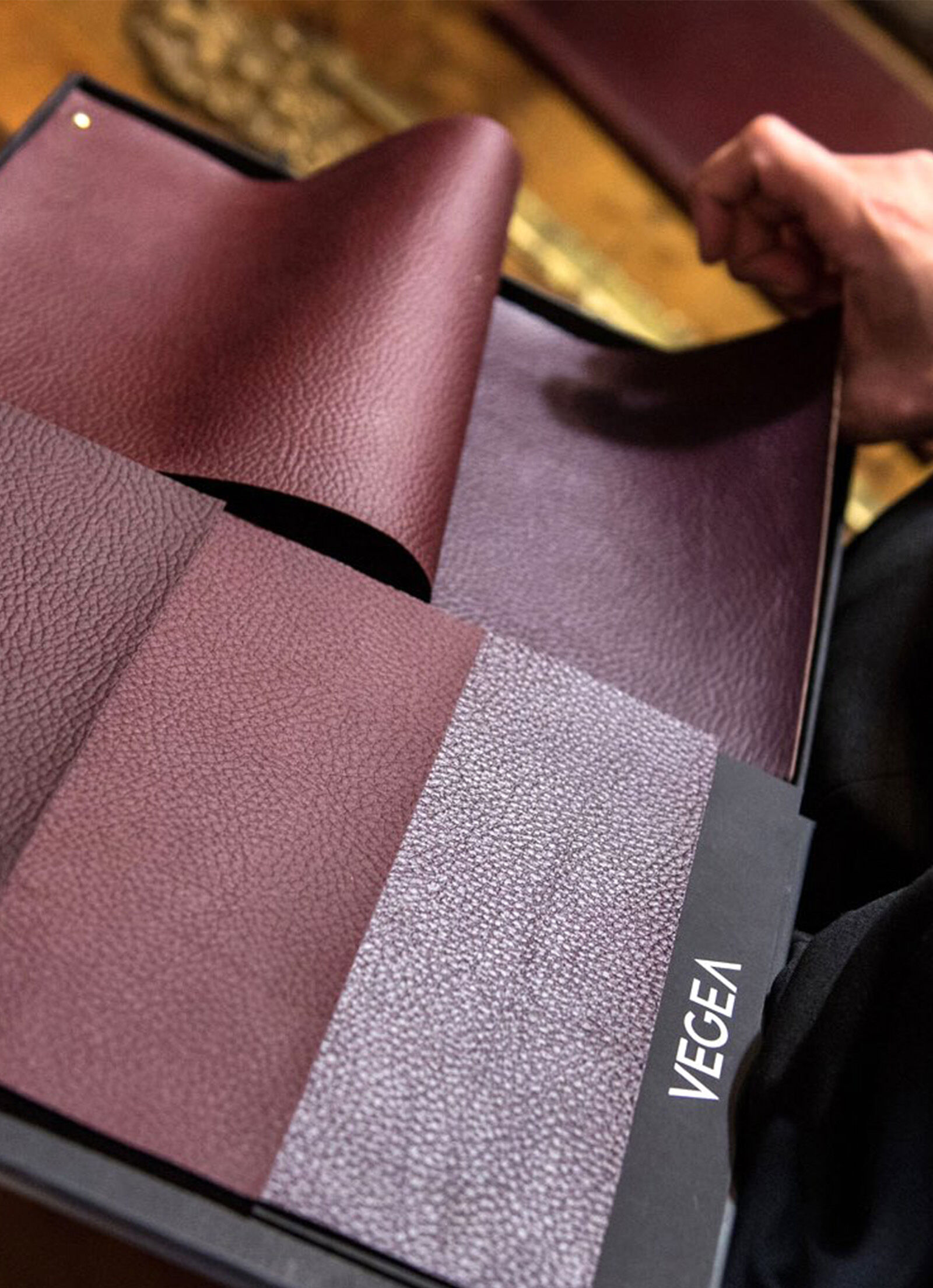Vegea
VEGEA is a grape-based vegan alternative to animal leather, sourced from the agricultural waste of wineries in Northern Italy. It is soft and versatile in technical and aesthetic properties, like thickness, finishing and texture.
What is VEGEA?
VEGEA is a biomaterials company that have developed a namesake plant-based alternative to animal leather sourced from and repurposing the agricultural waste of Italian wineries.
The material is crafted with repurposed grape waste – the pulp, seeds, skin and stems – from wineries, creating a luxurious cruelty-free alternative to animal leather without engaging in the impactful practices of traditional animal leather production. Conventional synthetic materials are often fossil fuel-based and release harmful, toxic chemicals into the atmosphere during production. By using waste from the winery industry as a material source – known as industrial symbiosis – we are reducing our reliance on virgin synthetics.
VEGEA is not produced entirely from waste – but it is a great start.
The VEGEA used in our collections is produced on a Global Recycling Standard (GRS)-certified recycled polyester backing and contains a water-based polyurethane – this further reduces our use of virgin materials by using recycled inputs. It is made with more than 70% renewable products. Used in the fashion industry, VEGEA is also innovated across the furniture and automotive industries – proof that there is a better way.
- Industrial symbiosis is the process in which waste or by-products of an industry – or industrial process – becomes the raw materials for another.
- It keeps valuable resources in use for as long as possible by identifying cross-sectoral business opportunities for using and repurposing them.
- It also has measurable environmental, social and economic benefits.
- The Global Recycling Standard (GRS) is an international, voluntary standard that sets requirements for third-party certification of recycled content, social and environmental practices and chemical restriction.
- GRS is a standard that is used for tracking and verification of how much recycled content is used in a fabric or process.
How is VEGEA made?
This grape-based alternative to animal leather is crafted in Italy. The VEGEA production process begins at Northern Italy vineyards, where the grape waste is collected – including the pulp, seeds, skin and stems. The waste is processed and mixed with vegetable resins and water-based polyurethane.
We have reduced our environmental footprint by localising the production supply chain. VEGEA’s production process is also solvent-free, metal-free and free from dangerous and toxic substances harmful to humans and the environment.
Why we believe in replacing animal leather
As well as being needlessly cruel, the environmental and social impact of producing animal leather is incredibly high. Animal agriculture accounts for around 19% of the world’s total greenhouse gas emissions and is driving the destruction of our rainforests[1].
According to the WWF, the farming of cattle for beef and leather products is responsible for 80% of the Amazon’s deforestation. Around 1.4 billion hides and skins of animals were used in global leather production in 2020 alone. That is approximately one animal for every five people on the planet[2].
Leather tanning is commonly outsourced to developing countries, where people must work in poor conditions with little safety or protections in place and are exposed to harmful and carcinogenic tanning chemicals. In Bangladesh, 90% of tannery workers die before the age of 50[3].
Discover more about our cruelty-free alternatives to animal leather.
Which of the United Nations’ Sustainable Development Goals does VEGEA’s material production support?
- 9. Industry, Innovation and Infrastructur
- 12. Responsible Consumption and Production
- 17. Partnerships for the Goals
[1] Agricultural subsidies and global greenhouse gas emissions (https://www.nature.com/articles/s41467-021-22703-1)
[2] ‘What are the biggest drivers of tropical deforestation?’, WWF. (https://www.worldwildlife.org/magazine/issues/summer-2018/articles/what-are-the-biggest-drivers-of-tropical-deforestation)
